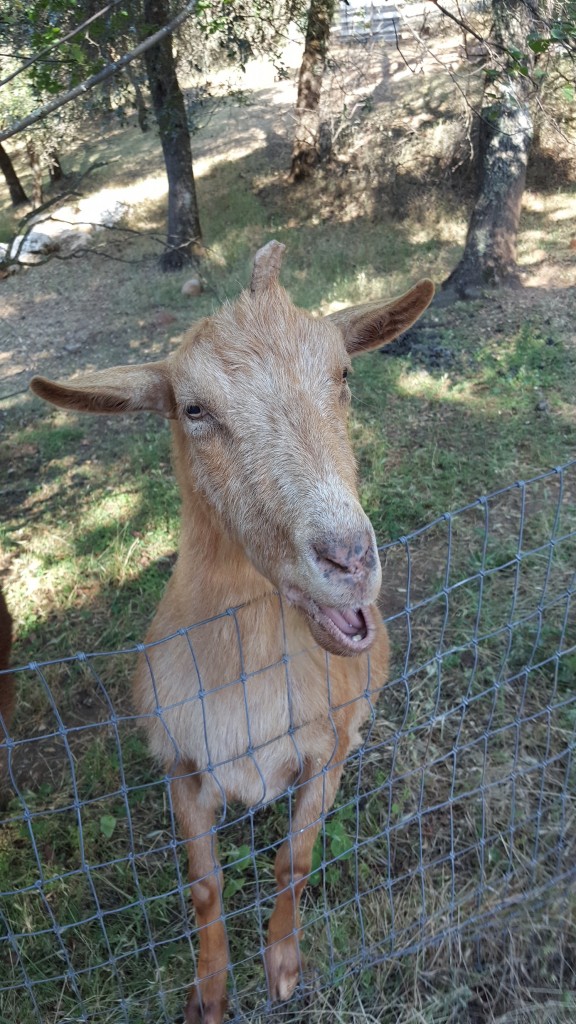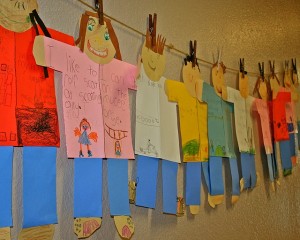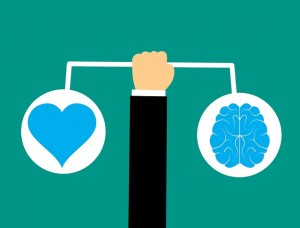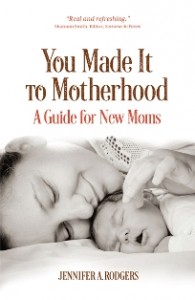Starting out the new year, I decided to cut out dairy (I found out that I am intolerant to it) and wheat (in support of my daughter who is intolerant to that). While I was in this mode of banishing foods, I decided to do Arbonne’s 30-day cleanse. Foods cut out on this cleanse are: wheat,  dairy, corn, soy, sugar (including nearly all fruits), caffeine, and alcohol. I figured “why not? I’m already cutting out a lot anyhow. It shouldn’t be that difficult” (“ha, ha, you fool!” my future self thought). I also wanted to see if there was a link between food and my all-too-frequent migraines and this would be a good way to find out. Haze, my husband, graciously agreed to support me and do it too. Here is my take on the four weeks and two days.
dairy, corn, soy, sugar (including nearly all fruits), caffeine, and alcohol. I figured “why not? I’m already cutting out a lot anyhow. It shouldn’t be that difficult” (“ha, ha, you fool!” my future self thought). I also wanted to see if there was a link between food and my all-too-frequent migraines and this would be a good way to find out. Haze, my husband, graciously agreed to support me and do it too. Here is my take on the four weeks and two days.
Week one: It’s been painful. I won’t lie. I’m not a big food person, and being a vegetarian I am used to not having three-quarters of any menu, but cutting out so much is tough. I am personally surprised that I made it the whole week. I kept counting each day. “Day 3, make it through day 3. Okay, day 4, I can get through this day…” and so on; and then, boom, one week is down. Making it to day 30 now seems possible, but let’s be honest, I’m not there yet.
I noticed that I am hungry A LOT. I am tired. I depended on my morning coffee more than I realized and there were a couple of times that I had a cup of green tea (with nothing in it, mind you) because I needed SOMETHING, or at least I thought I did. However, part of my reasoning for embarking on this is to see if there is any pattern to my migraines. Besides the caffeine-withdrawal-dull-ache at the back of my skull that I had for two days, no migraines. In fact, without coffee, my head feels better: no tense jaw muscle or tight neck, and when I get hungry and should have eaten an hour ago, no oncoming signals of a migraine or shakiness. Could my greatest love, the java, be part of problem? Sigh, I hope not.
Side note: I also learned during this first week that you cannot substitute cayenne pepper for chili powder. And eating that incredibly hot chili makes your stomach burn, however you will not feel hungry for quite awhile (until the stomach lining is not on fire any more). I failed at some other recipes too, but all learning experiences.
Week two: The first part of the week went by fast and I was on the path, then by Friday I wanted “flavor” (that’s what I thought to myself). In the end, I think I wanted to sugar or possibly carbs. This continued, with a cranky mood to boot, until Sunday when I thought I might be getting the flu so I laid in bed and felt sorry for myself instead (but the craving went away!). I also woke up that morning with a headache that felt like a pounding sinus headache and would surely lead to a migraine (but didn’t!). Up until this point I haven’t had any other migraine symptoms, to my surprise, which makes me wonder why I’m on the verge of one now. I do keep waking up in the five o’clock hour, so I’m tired, which is always a contributing factor. And the weather has changed from warm to cold with rain which never helps the noggin.
Week three: During week three, a cleanse is added to the cleanse (because we just can’t get enough) with a detox liquid that is diluted in 32 oz of water (tastes like a weak tea) then it’s recommended to drink another 32 oz of water to really flush everything out. Drinking that much fluid, with it constantly going through my body, gave me the added distraction of feeling full from liquid and running to the bathroom to void that liquid. However, by day six, I was tired of drinking so much. I felt a little like Dumbledore drinking out of the basin for Voldemort’s horcrux (“No Harry, no, please, no more!”). But I got through it. The other added difficulty was overwhelming sugar cravings (due to hormones I learned) that I usually give into, but didn’t this time so I was slightly cranky about that, however I managed to stay the course.
Week four + 2 days: This last week feels triumphant, “Nearly there!” I think to myself on Monday, but the week drags on. On Thursday I woke up convinced that my husband was brewing coffee, and it smelled so good! Then I was angry, “Why is he brewing coffee? We can’t have that!” Once I actually got out of bed, woke up a bit, and went out into the kitchen, I realized that no coffee was brewing. In fact, a skunk had sprayed near the house during the night and that’s what I was smelling. “I’m hurtin,” I think to myself. The week continued on slowly. I had to cover my nose in a meeting because someone made microwave popcorn and it smelled delicious. By Sunday, when I think it should be over and it’s not, I’m ready to give up, but I don’t. The success of not having headaches is obvious. To give in now, to gorge on pizza, beer, chocolate, and coffee (yes, all at once) would be to sacrifice all I’ve worked for this last month. So I don’t. I eat another green apple and carry on.
Final Day: It seems like twenty-nine days was so long ago. It’s hard to believe that I’ve done it! I’m glad and weirdly, somewhat sad. I’m also nervous to go back to “regular food” for fear of bringing migraines back. I’ve decided to make a detailed food log each day to track what might be the culprit.
To end, here is my list of pluses and minuses and Haze’s pro/con list for this uplifting and sometimes anguishing 30-day cleanse:
Jen’s Plus and Minuses:
Pluses
– My migraines diminished significantly.
– I was forced to plan out meals and be organized about it (which I’m usually terrible about).
– We tried new recipes that I would otherwise not make because it didn’t sound appetizing or I was too lazy.
– I knew exactly what I was putting in my body; no questions about ingredients I can’t pronounce or lab-created chemicals.
– Feeling good – I’m not sure if this was due to just eating better or not feeling guilty or shameful for having overindulged in sweets, caffeine, or alcohol. When you can’t have anything, there isn’t much to feel bad about. It also taught me that I can persevere; and if the world ends, I have a Granny Smith apple tree and a pistachio tree that I can live off of.
Minuses
– The same old foods get boring after awhile. This mainly pertains to snacks. I’m pretty tired of those nuts and green apples. My husband would rather feed his daily lunch salad to the goats or throw it out the window of his office. There are a variety of recipes to make, but we’re ready to take a break from beans for awhile (in taste and their digestive payback).
– Planning every meal can be difficult. Grabbing something and going is not an easy option with this cleanse. Traveling for work made it difficult for Haze at times; being in a meeting when they serve sandwiches for lunch is hard (he looks a little weird picking the entire thing apart and munching on the lettuce while scraping off the mayo).
– Going out to eat or to parties is prohibitive. The majority of restaurants have nearly NOTHING that would satisfy all the elements of this cleanse, even a salad would have dressings that we couldn’t eat (and then what’s the point?). Bringing food to parties is an option, but who wants to hang around a bunch of people stuffing their happy faces only to look on forlornly? Not me. We stayed home and had another green apple.
– Being hungry. The first one to two weeks are hard. I was hungry, really hungry. That is pretty typical when a diet is changed so drastically, but for me it would still come back at times and I was ravenous. Eating more carrots and nuts just didn’t cut it. After awhile it would go away, but sometimes it would be back, my mind tempting me with all sorts of contraband. Haze and I dealt with it (he better than me because he didn’t feel hungry all that often). Knowing there would be other options out there (after it’s over) was helpful to my mind and body.
Haze’s Pro/Con List:
Pros
– Lost weight without feeling really hungry like a regular “diet” usually does (he lost 18lbs and 2.5 inches around the middle; I lost 4lbs and an inch).
– Feeling better (according to Haze, he doesn’t feel “outstanding,” but “feels better” in general).
– Digestion also feels better (again, no real elaboration, but he does think things are going more smoothly than before).
Cons:
– Food limitations – he missed having a nice cup of coffee in the morning (and bread).
– The inconvenience of making every meal (no easy take-out options).
– Lots of gas (no need for elaboration here).
My take-away from this whole experience is that it’s worth doing. Even though it was tough at times, the benefits outweighed the pain. When I asked Haze, “Do you have any real take-away from all of this?” His answer was, “I do feel better than I did before and weigh less, which is good, but you have to get used to farting a lot.”
Oookay, enough said.


 -line, there is a price to pay for being able to see anyone you know on the Internet – our privacy. Our kids today have been born into a time in which pictures are constantly taken then uploaded for the world to see. In turn, they will do the same, and it’s not always the super cute pictures of them as babies with a sleeping kitten, they’re pictures that can be humiliating or shameful – pictures they wouldn’t want anyone seeing, and now almost anyone can. Wiseman points out, “When you were a teen, your most embarrassing and humiliating moments weren’t up for public discussion and entertainment….She’s living that moment in public. There’s no protection. There’s no privacy. This is her regular, ever-present reality. Your daughter is growing up with a different definition of what’s public and what’s private.”
-line, there is a price to pay for being able to see anyone you know on the Internet – our privacy. Our kids today have been born into a time in which pictures are constantly taken then uploaded for the world to see. In turn, they will do the same, and it’s not always the super cute pictures of them as babies with a sleeping kitten, they’re pictures that can be humiliating or shameful – pictures they wouldn’t want anyone seeing, and now almost anyone can. Wiseman points out, “When you were a teen, your most embarrassing and humiliating moments weren’t up for public discussion and entertainment….She’s living that moment in public. There’s no protection. There’s no privacy. This is her regular, ever-present reality. Your daughter is growing up with a different definition of what’s public and what’s private.” l when you were a kid and need that toy (I’m thinking Barbie again or He-Man in my brother’s case). This isn’t new either. But kids who play on-line, get free apps, or just use mom’s phone while in line at the grocery store, see double that, usually for other games (my eight-year-old son thinks he wants every game he sees advertised in other games). According to APA.org, “advertisers spend more than $12 billion per year to reach the youth market and that children view more than 40,000 commercials each year.” Think about all those opportunities for “I gotta have that,” “I need that,” “I’m not good enough or cool enough unless I get that.” It’s overwhelming! Again, if your tween is going to be a “normal” kid (and yes, he or she probably really wants to be) then an on-line world is inevitable – thus, so are the ads.
l when you were a kid and need that toy (I’m thinking Barbie again or He-Man in my brother’s case). This isn’t new either. But kids who play on-line, get free apps, or just use mom’s phone while in line at the grocery store, see double that, usually for other games (my eight-year-old son thinks he wants every game he sees advertised in other games). According to APA.org, “advertisers spend more than $12 billion per year to reach the youth market and that children view more than 40,000 commercials each year.” Think about all those opportunities for “I gotta have that,” “I need that,” “I’m not good enough or cool enough unless I get that.” It’s overwhelming! Again, if your tween is going to be a “normal” kid (and yes, he or she probably really wants to be) then an on-line world is inevitable – thus, so are the ads. e to know and what to do in a shooter situation is becoming more real and more of a possibility.
e to know and what to do in a shooter situation is becoming more real and more of a possibility. need a balance.
need a balance. r pregnancy books before I gave birth to my daughter. My husband and I took the classes on delivery (which I found scary instead of comforting). I went to the breastfeeding class. I talked to mothers with both young and older children. Few, if any, of these sources could prepare me for the life transformation that a baby actually brings. What was more frustrating was that no one warned me that this was a complete life change. Having babies and entering motherhood is so commonplace in our society that few people stop to think about how our lives are transformed by a baby. One reason for this might be that the women who have experienced motherhood, like grandmothers or mothers with grown children, quickly forget what it was like that first year. In the time span of your child’s life there is so much that will happen, from his first steps across the living room floor to his stride across the stage at high school graduation, it is easy to forget what that first year was like. There are also those moms who blend into motherhood so easily that it appears they do not have the same experiences or feelings that many of us do. I am confident in my belief that these mothers are part of a very small minority, and even they have difficult times coping with the responsibilities of motherhood sometimes. There are some of us, too, who do not want to admit or accept this permanent change that happens in our lives. I wanted to have a baby, but I was afraid of the idea at the same time, and I did not want to believe that a baby would change me, my husband, or our marriage. My thoughts were: What if this is not what I expect? What will happen? I cannot go back…right?
r pregnancy books before I gave birth to my daughter. My husband and I took the classes on delivery (which I found scary instead of comforting). I went to the breastfeeding class. I talked to mothers with both young and older children. Few, if any, of these sources could prepare me for the life transformation that a baby actually brings. What was more frustrating was that no one warned me that this was a complete life change. Having babies and entering motherhood is so commonplace in our society that few people stop to think about how our lives are transformed by a baby. One reason for this might be that the women who have experienced motherhood, like grandmothers or mothers with grown children, quickly forget what it was like that first year. In the time span of your child’s life there is so much that will happen, from his first steps across the living room floor to his stride across the stage at high school graduation, it is easy to forget what that first year was like. There are also those moms who blend into motherhood so easily that it appears they do not have the same experiences or feelings that many of us do. I am confident in my belief that these mothers are part of a very small minority, and even they have difficult times coping with the responsibilities of motherhood sometimes. There are some of us, too, who do not want to admit or accept this permanent change that happens in our lives. I wanted to have a baby, but I was afraid of the idea at the same time, and I did not want to believe that a baby would change me, my husband, or our marriage. My thoughts were: What if this is not what I expect? What will happen? I cannot go back…right?  elf. The adjustment of just coming into the world must be overwhelming for a baby. He is nestled in a confined, warm, dark place listening to the steady sound of a heartbeat and other bodily noises. Then, probably without warning, muscles around him contract and he is pushed out into the world of bright lights, loud sounds, and a place that makes his body feel cold. Just learning what these new sensations are must be exhausting. (There is a reason we have no memory of our births, afterall; it is probably too traumatic for us.) So we care for him. We hold him, we love him, we offer him a breast or bottle, we try to make him as comfortable as possible in this new and strange world. But in the end, we really do not know what is going through his new and functioning mind. We do our best, but it might not be right. And if it isn’t, then we often hear about it, very loudly. It is extremely frustrating to make blind guesses and not know whether it is the correct answer. Yes, the crying may stop, but does that mean the problem is fixed? Maybe, temporarily, this time. Grasping this understanding that the right solution doesn’t always exist was extremely hard for me to take. Why can’t I plug in the correct number and get a solid answer? Because, I realized after many months, this little being is human and she possesses the complexities that all of us have: emotions, feelings, needs, and wants. And she is just now learning what all of these things are, and who exactly I am, that person who holds her, feeds her, and tries to console her. Sometimes she might have been crying to release all those emotions that she did not understand. In the end, I felt just as confused as she probably did.
elf. The adjustment of just coming into the world must be overwhelming for a baby. He is nestled in a confined, warm, dark place listening to the steady sound of a heartbeat and other bodily noises. Then, probably without warning, muscles around him contract and he is pushed out into the world of bright lights, loud sounds, and a place that makes his body feel cold. Just learning what these new sensations are must be exhausting. (There is a reason we have no memory of our births, afterall; it is probably too traumatic for us.) So we care for him. We hold him, we love him, we offer him a breast or bottle, we try to make him as comfortable as possible in this new and strange world. But in the end, we really do not know what is going through his new and functioning mind. We do our best, but it might not be right. And if it isn’t, then we often hear about it, very loudly. It is extremely frustrating to make blind guesses and not know whether it is the correct answer. Yes, the crying may stop, but does that mean the problem is fixed? Maybe, temporarily, this time. Grasping this understanding that the right solution doesn’t always exist was extremely hard for me to take. Why can’t I plug in the correct number and get a solid answer? Because, I realized after many months, this little being is human and she possesses the complexities that all of us have: emotions, feelings, needs, and wants. And she is just now learning what all of these things are, and who exactly I am, that person who holds her, feeds her, and tries to console her. Sometimes she might have been crying to release all those emotions that she did not understand. In the end, I felt just as confused as she probably did. ried. I blamed it on an influx of hormones and exhaustion. My husband looked nervously in the rearview mirror, “Uh…are you okay?” he asked. I assured him that I was fine, but the tears needed to come out. I suppose it was just a release after a very long labor, and the actual realization that this baby was coming home with us, ready or not. Our lives had changed.
ried. I blamed it on an influx of hormones and exhaustion. My husband looked nervously in the rearview mirror, “Uh…are you okay?” he asked. I assured him that I was fine, but the tears needed to come out. I suppose it was just a release after a very long labor, and the actual realization that this baby was coming home with us, ready or not. Our lives had changed. dairy, corn, soy, sugar (including nearly all fruits), caffeine, and alcohol. I figured “why not? I’m already cutting out a lot anyhow. It shouldn’t be that difficult” (“ha, ha, you fool!” my future self thought). I also wanted to see if there was a link between food and my all-too-frequent migraines and this would be a good way to find out. Haze, my husband, graciously agreed to support me and do it too. Here is my take on the four weeks and two days.
dairy, corn, soy, sugar (including nearly all fruits), caffeine, and alcohol. I figured “why not? I’m already cutting out a lot anyhow. It shouldn’t be that difficult” (“ha, ha, you fool!” my future self thought). I also wanted to see if there was a link between food and my all-too-frequent migraines and this would be a good way to find out. Haze, my husband, graciously agreed to support me and do it too. Here is my take on the four weeks and two days. 
 ne. If your children are relatively content in their lives, even with the frequent complaints about life in general, assume that your parenting is up to par. All kids, all people, typically want something they don’t have, so if you child’s biggest complaint is that he wants his own tablet and doesn’t want to share with his brother, then you’re doing fine.
ne. If your children are relatively content in their lives, even with the frequent complaints about life in general, assume that your parenting is up to par. All kids, all people, typically want something they don’t have, so if you child’s biggest complaint is that he wants his own tablet and doesn’t want to share with his brother, then you’re doing fine.
 As I start down this path of publishing and marketing a book, one repeated piece of advice I have read is to define success and what success means to me. The argument is that that most people have no real definition of success, so how can they ever reach it. In the world of writing, it is wanting to be a successful author. What does that mean? Getting on the best seller lists? Making a fortune? Turning books into block buster movies? I have yet to define mine, but I highly doubt that it will be any of those milestones. Selling 20,000 copies would be nice, but I don’t know if my dad can afford to buy that many.
As I start down this path of publishing and marketing a book, one repeated piece of advice I have read is to define success and what success means to me. The argument is that that most people have no real definition of success, so how can they ever reach it. In the world of writing, it is wanting to be a successful author. What does that mean? Getting on the best seller lists? Making a fortune? Turning books into block buster movies? I have yet to define mine, but I highly doubt that it will be any of those milestones. Selling 20,000 copies would be nice, but I don’t know if my dad can afford to buy that many.

 e’re lucky and fortunate; and yet, we still want more. And when we get more, well then, we usually still want more. Not often do we see people willing to “give more;” instead it’s to “get more.”
e’re lucky and fortunate; and yet, we still want more. And when we get more, well then, we usually still want more. Not often do we see people willing to “give more;” instead it’s to “get more.”